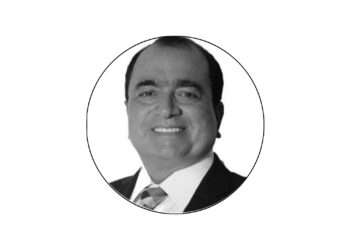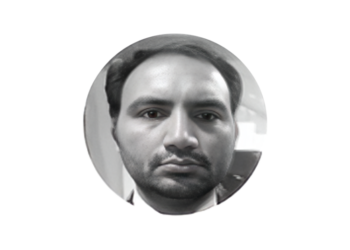The observers of global politics are well aware that in recent years, there has been a continuous discussion about a new global order emerging from China and Russia. Until a year ago, these were just talks, but now there is also substantial progress in this direction.
Understanding this backdrop raises a crucial question: Why was the need for a new global order felt, and why on such a large scale?
The current global system is called the “Rules-Based International Order.” Just by looking at this title for a moment, it becomes clear that this system is more than just empty words. At the national or global level, the order starts with the constitution, which establishes basic rights. After that come the laws that are based on the principles of ensuring the provision of these rights and the imposition of penalties for violations. It is essential to note that both the constitution and the law are approved by the parliament. The most crucial thing is what is called “Rules.” These rules are institutions that govern their day-to-day affairs. They are not approved by parliament but are self-created institutions that manage their own affairs and can change over time.
Just as the principle for laws is that they should not contradict the Constitution, the principle for rules is that they should not be in conflict with the Constitution and laws. Global legal authority is also based on these lines, where the United Nations Charter holds the status of global constitution. Under this charter, various international laws for trade, warfare, and disputes exist. Just as within a state, the law cannot be in conflict with the constitution and rules cannot be in conflict with the law, the same principle applies on a global scale.
After the analysis of the Soviet Union, the “Rules-Based International Order” has been gradually revealed to be an order that is more than just talk. It is making clear that the United Nations Charter and global laws have been relegated to the background, and the world will now follow the rules set by the United States and its allies. That means the lease of rules instead of the constitution and the law. So, during the past thirty years, the United States and some of its allies continued to challenge global laws while allowing or denying global laws. Global laws are followed by all countries worldwide, regardless of the interests of the United States and its few weak allies.
For example, according to global laws, the United States or the West had no right to demand from Pakistan that it should abolish certain sections of its constitution, bring certain changes to its educational system, or that certain individuals should not come to power. But the United States has done this not only to Pakistan but to the entire world, and its Western allies have supported this practice. To some extent, this is why the world is now bending its back under the umbrella of China and Russia for a new global order.
Regarding the new global system, Russian President Vladimir Putin made a historic statement recently. This statement was made at the annual conference of the Moscow-based think tank “Valdai Club.” As tradition dictates, this year’s conference was attended by scholars and journalists from all over the world, and following his speech, Putin engaged in a lengthy question-and-answer session.
In his speech at the conference, Vladimir Putin, while clarifying the shortcomings of the current global system, made a witty remark. To say it is just one sentence, but upon closer examination, it is a comprehensive commentary on the current global system. He said,
“We were always told that we are issuing a warning. I ask, who are you to issue warnings to?!”
After decades of the current system, Putin has now presented the fundamental concept of a new possible system, which is of paramount importance. In the new global order, every culture and civilization in the world will have the right to preserve its identity. No country will have the right to interfere in the religion, culture, or political system of another country. It will be up to each culture and nation to decide how they organize their system and how they run it. Foreign interference in domestic affairs will be prohibited.
Reading this speech, our mind immediately goes to the member countries of the BRICS alliance. Eleven out of the eleven members are those who have maintained a multicultural background for centuries. Who is not familiar with the ancient civilizations of China, Egypt, Iran, India, Africa, and the Islamic world? We remember that when in August, the BRICS gave membership to insignificant countries, there were questions raised about why Ethiopia, a country with a rich civilization, was given membership. It is clear from this speech that Ethiopia’s importance lies in why it was given membership.
Saudi Arabia and Iran, coming together for a common cause rather than competing, is also a significant hint. Instead of drinking from the same riverbank, it is a clear signal that they are drinking from the same river.
What is less important is that in the present vision of the BRICS, where the initial inclusion of countries with ancient cultural backgrounds is of utmost importance, it is equally unimportant that currently “Western civilization” is not allowed within the borders of the BRICS. If we think about it, this is a reassuring thing for our local liberals. Because in the vision of the Civilizational World Order, the global liberals can discuss their conditions of slavery with Rules-Based World Order from 2020.
Liberalism was essentially an attack on religion and culture. Its fundamental idea was that no religion and culture has the right to remain as a system. Only liberalism will be the global way of life. It seemed that there was no need for the richness and diversity of colors. Only one color would prevail, and that would be the color of liberalism. Hence, in our country, this system produced those lowly individuals who have no understanding of theoretical ideas, but they consider it a matter of pride to abandon tradition.
‘I don’t believe in God’ – have you ever wondered why the one who says this is always a liberal? Because atheism is a funded project of liberal states. We say conditionally that if Muhammad bin Salman offers good deals, even Wajahat Masood, the foremost ‘monotheist’ in Pakistan, can come forward. Those who had opposed Communism in bad times, why don’t they do the same now? Here, they analyzed the Soviet Union, and there, the native communists became native liberals. With a theoretical life, such a farce can only be performed by those who are 100% hypocrites.





























